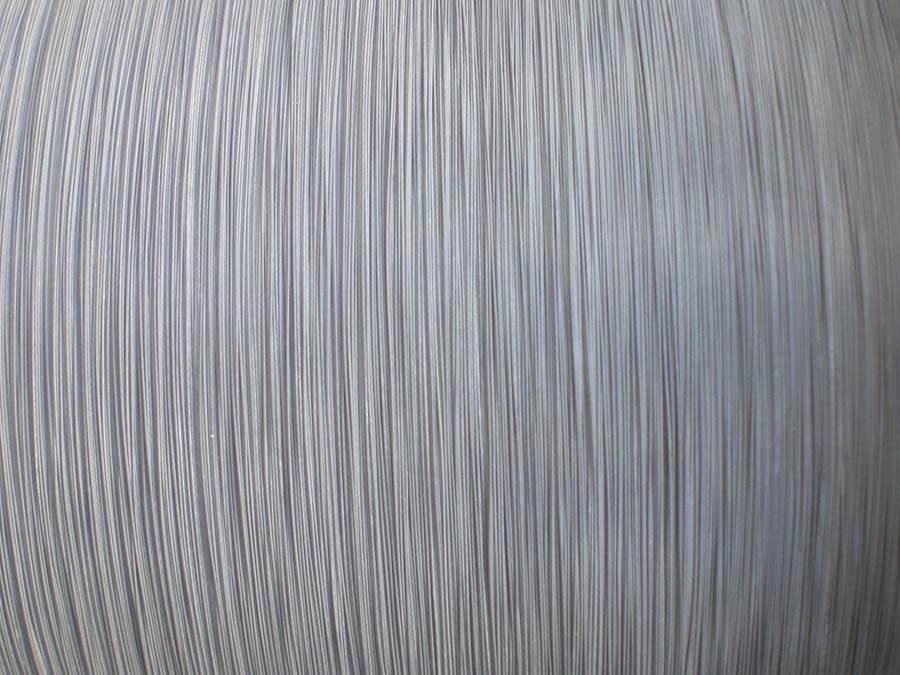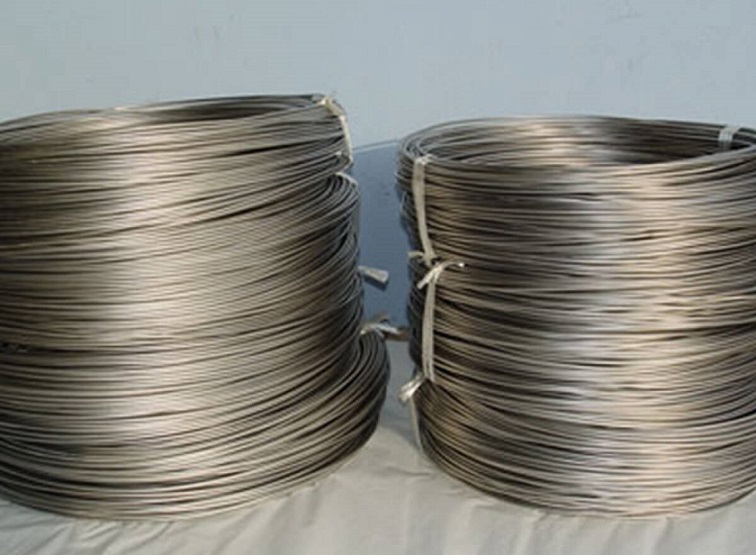Types and Applications of Titanium Wires

Titanium is a silver-white metal with many excellent properties. For example, the density of titanium is 4.54g/cm3, which is 43% lighter than steel, but its mechanical strength is similar to that of steel. And titanium is resistant to high temperatures and has a melting point of 1942K, which is nearly 500K higher than steel. In recent years, with the continuous research of titanium, more and more products made for titanium can be found in our daily life and titanium wires are one of them.

Titanium Wires
The Types of Titanium Wire
According to the different properties of titanium and titanium alloys, titanium wire with different requirements can be prepared, generally divided into pure titanium wire, titanium alloy wire, pure titanium glasses wire, titanium straight wire, titanium welding wire, titanium hanging wire, titanium coil wire, titanium bright wire, medical titanium wire, titanium nickel alloy wire, etc.
Different types of titanium wire have different uses. For example, pure titanium glasses wire is mainly used for making glasses holders, titanium hanging wire is used for hanging weight, and titanium nickel alloy wire is commonly used as a memory alloy material.
The Applications of Titanium Wire
Titanium wire also perfectly inherits the advantages of titanium and titanium alloys, with a series of excellent characteristics such as good corrosion resistance, high specific strength, non-magnetic, high biocompatibility, low impedance to ultrasound, and good shape memory function.
Therefore, titanium and titanium alloy wires are widely used in many fields such as the military industry, glasses, earrings, headwear, electroplating hangers, welding wires, aerospace, petrochemical, medical and health, automotive, construction, and sports and leisure products.
And in recent years, due to the continuous development of the titanium wire industry, the variety of titanium wire has become increasingly diverse, which makes titanium wire more and more widely used in high-performance industrial supplies and consumer products.
1. At present, more than 80% of titanium and titanium alloy wires are used as welding wires, such as welding of various titanium equipment, welding pipes, repair welding of turbine discs and blades of aircraft jet engines, and welding of casings.
2. Due to its excellent corrosion resistance, titanium wire has been widely used in chemical, pharmaceutical, papermaking, and other industries. It can be made into a mesh for seawater filter, purified water filter, chemical drug filter, etc.
3. Titanium and titanium alloy wires are also used to manufacture fasteners, load-bearing members, springs, etc. due to their good overall performance.
4. In the medical and health industry, due to their excellent biocompatibility, titanium and titanium alloy wires are used to manufacture medical devices, skull fixation, etc.
5. Some titanium alloy wires with shape memory function, such as titanium-nickel alloy wires, are used to make satellite antennas, shoulder pads for clothes, women's bras, and eyeglass frames.
6. In the electroplating and water treatment industries, titanium and titanium alloy wires are used to manufacture various electrodes.
In short, with the development of the economy, the demand for titanium and titanium alloy wires is increasing. At present, titanium and titanium alloy wires are in short supply, and their development potential is very large.
Conclusion
Thank you for reading our article and we hope it can help you have a better understanding of the types and applications of titanium wire. If you want to know more about titanium wire, we would like to advise you to visit Advanced Refractory Metals (ARM) for more information.
Headquartered in Lake Forest, California, USA, Advanced Refractory Metals (ARM) is a leading manufacturer & supplier of refractory metals throughout the whole world. It provides customers with high-quality refractory metals & alloys such as tungsten, molybdenum, tantalum, rhenium, titanium, and zirconium at a very competitive price.
{{item.content}}
LEVE A REPLY
{{item.children[0].content}}
{{item.content}}






